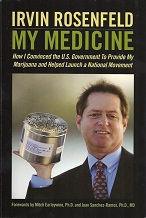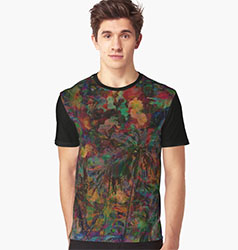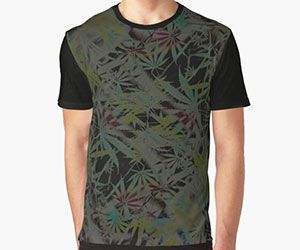The Canadian Centre on Substance Abuse has called for THC[1] limits for edible cannabis[2] products to be set at a maximum of 5 milligrams per package. The recommendation is part of a brief submitted to Health Canada as the federal health agency develops regulations for marijuana edibles and extracts, which are scheduled to be legalized in Canada later this year. The country legalized cannabis flower and oils for recreational use and sale in October of last year.
Under current regulations for medical marijuana products, cannabis edibles are capped at 10 milligrams of THC per package. But the CCSA, an agency that was created by Parliament to provide national leadership to address substance use, believes that the maximum allowed should be lowered for several reasons. The CCSA brief[3] notes that edible products can be unwittingly ingested by children or adults who are not aware they contain THC, that edibles carry a risk of over-consumption because of the increased time for ingested THC to take effect, and “the duration of impairment associated with the increased duration of effect when THC is ingested rather than smoked.” A smaller unit size would also allow for more selective and accurate dosing, according to the brief.
Protecting Public Health
Rebecca Jesseman, the director of policy for the CCSA, said in a press release this week that cannabis regulations should be developed cautiously and from a public health perspective.
“Taking a public health approach to regulating cannabis applies the same principle as taking a harm reduction approach to using cannabis: Start low and go slow,” Jesseman said[4].
The statement noted that “cannabis containing high levels of THC is associated with greater health risks and harms, including increased levels of impairment, dependence and experience of psychotic episodes.”
In a television interview, Jesseman said that the recommendation would protect children who accidentally consume cannabis edibles.
“A five-year-old gets to a chocolate bar that only has 5 milligrams of THC they’re not going to be in as scary a medical situation as if they had eaten a chocolate bar with 50 to 100 milligrams of THC,” said Jesseman[5].
The CCSA hopes to avoid a situation like the one experienced in Colorado when unregulated THC levels in edible products caused a 50 percent jump in calls to the poison control center for marijuana exposure in children in the first year of legalization.
In addition to the 5 milligram THC limit, the brief from the CCSA also included recommendations for public education and the packaging and labeling of cannabis products. The agency acknowledged that some may find the recommendations to be very strict, but said that it would be easier to relax regulations in the future if they are deemed too tight than it would be to make them tighter.
“Beginning with more restrictive regulations and providing opportunities to expand them over time is easier and less costly to industry than trying to impose more restrictive regulations should there be unanticipated negative impacts,” the brief reads.
References
- ^ THC (hightimes.com)
- ^ cannabis (hightimes.com)
- ^ CCSA brief (www.ccsa.ca)
- ^ Jesseman said (globenewswire.com)
- ^ said Jesseman (www.chch.com)
Read more https://hightimes.com/news/canadian-health-officials-recommend-limiting-thc-edibles-5mg/
Latest
Coronavirus Strikes Massachusetts Cannabis Company Employees
Reassessing the Essential: Cannabis in the Time of a Pandemic
5 Reasons To Try Aspen Valley CBG Flower (30% Off)
High Times Cannabis Cups Go Virtual In Wake Of Coronavirus Pandemic
Drug Enforcement Administration Proposes Plan To Expand Cannabis Research
Ghana Legalizes Cannabis For Medicinal And Industrial Uses
The cheapest legal weed in Canada: Discover these cannabis ‘value brands’
Cannabis and coronavirus: Here’s what you need to know
cannabis designs
The Best Of
WHO Rules CBD Should Not Be a Scheduled Drug

Dr Cristina Sanchez PhD video interview on medical marijuana and cancer

Biochemist Dennis Hill interview; Cannabis oil as a cure for cancer.

The unofficial World Record holder for cannabis smoking part 1





